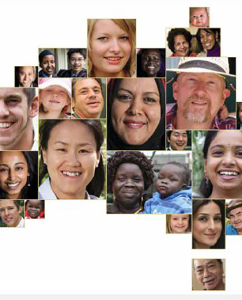Election 2022 – How the parties compare on migration and refugees
There are similarities but also key points of difference between the Coalition and Labor policies on migration and the humanitarian sector in the lead up to the 2022 federal election.
With the 2022 poll just weeks away, we take a look at how the major parties’ policies compare on migration, multiculturalism and the humanitarian sector.
Migration
 Labor has made immigration reform a key plank in its election policy agenda, vowing to end the nation’s dependence on short-term visa holders and make it easier for foreign workers to become permanent residents.
Labor has made immigration reform a key plank in its election policy agenda, vowing to end the nation’s dependence on short-term visa holders and make it easier for foreign workers to become permanent residents.
Opposition immigration spokeswoman Kristina Keneally said the re-opening of Australia’s international borders presented a golden opportunity to overhaul the country’s migration system and reduce the reliance on temporary workers to fill skills shortages.
The number of short-term visa holders in Australia surged to 2.4 million in the years leading up to the pandemic before slipping to 1.8 million following the border shutdown.
Business leaders have complained that skills shortages – exacerbated by a decline in migration during the pandemic – are holding back economic growth.
Under a Coalition government migration will remain capped at 160,000 places for next year, according to Immigration Minister Alex Hawke, despite calls from industry groups to increase numbers to help combat a skilled labour shortage. The recent federal budget showed two thirds of the places will be for skilled migrants at the expense of family reunion and partner visas.
The Australian Industry Group had called for 190,000 places. But employment restrictions on international students will be relaxed to allow them to work more than 40 hours a fortnight.
Refugees
The Coalition government has pledged to maintain the humanitarian refugee intake at 13,750, after reducing it from 18,750 in 2020. But it will provide an additional intake of 16,500 over four years from 2022-23 for refugees from Afghanistan.
The government has also undertaken to introduce a new community sponsorship program, the Community Refugee Integration and Settlement Pilot, within the existing humanitarian intake, which will allow families, communities or faith groups to sponsor refugees to come to Australia.
It has also created a pilot program of 200 places within the skilled migration program to enable Australian businesses to recruit refugees with specialist skills.
The Labor Party has said it will increase Australia’s annual humanitarian intake to 27,000 per year as well as progressively increasing the community sponsored refugee program intake to 5,000 places per year.
It has promised to facilitate opportunities for business, community groups, individuals and State, Territory and local governments to participate in and support the resettlement of refugees through a community sponsored refugee resettlement program. These places will be in addition to the existing refugee and humanitarian program.
Asylum seekers
The Coalition government says it will maintain the current fast-track assessment process and the Immigration Assessment Authority It will also maintain the current policy of Temporary Protection Visas (TPVs) and Safe Haven Enterprise Visas (SHEVs) which give asylum seekers fixed term visas.
The Labor Party says it will abolish TPVs and SHEVs and transition eligible refugees onto permanent visa arrangements.
It says asylum seekers will have means-tested access to funded migration assistance, and to appropriate social services, including income, crisis housing, healthcare, mental health, community, education and English language support during the assessment of their claims for protection.
Labor says it will reintroduce the appropriate references to the Refugee Convention into the Migration Act 1958 aimed at ensuring what it says are fair and consistent outcomes, including access to review and independent advice.
The assessment and review of protection claims of specific lesbian, gay, bisexual, transgender, intersex and queer asylum seekers will also become part of the asylum system.
Labor has also promised to reinstate the Refugee Review Tribunal and abolish the fast-track Process and Immigration Assessment Authority.
Both parties say they will continue the policy of boat turn backs and offshore processing of asylum seekers.
Immigration detention
The Coalition says it will maintain the current policy of mandatory indefinite detention but also that it will endeavour to remove all children seeking asylum from onshore detention.
Labor says it will also maintain the policy of mandatory detention, including children, but will attempt to implement legislation to ensure that mandatory detention of unauthorised arrivals is for no longer than 90 days.
The opposition’s policy says: “As soon as the reasons for mandatory detention have ceased, every effort must be made to remove asylum seekers from immigration detention centres through community detention or the granting of bridging visas with work rights.”
Labor says it will appoint an independent children’s advocate to represent the interests of children seeking asylum and legislating to impose mandatory reporting of child abuse.
Multiculturalism
Labor’s 2021 Multicultural Statement stresses the importance of inclusion, participation and settlement. It says Labor will listen to multicultural communities and responding to their concerns. It has promised to announce a suite of multicultural policy commitments in the run up to the election.
The Coalition’s long standing Multicultural policy commits it to “maintaining and further enhancing Australia’s unique and enriching cultural diversity within the framework of national unity”.












